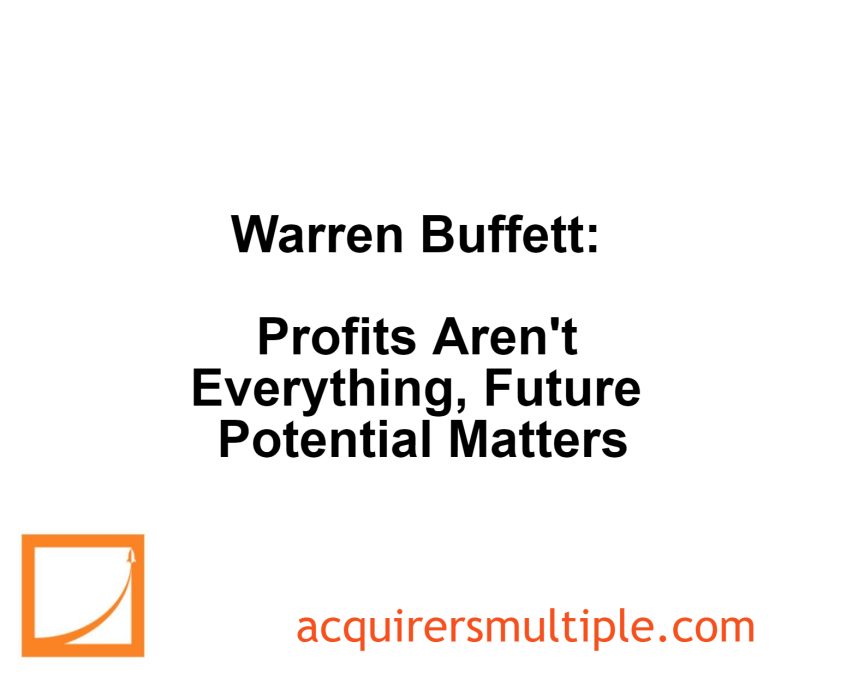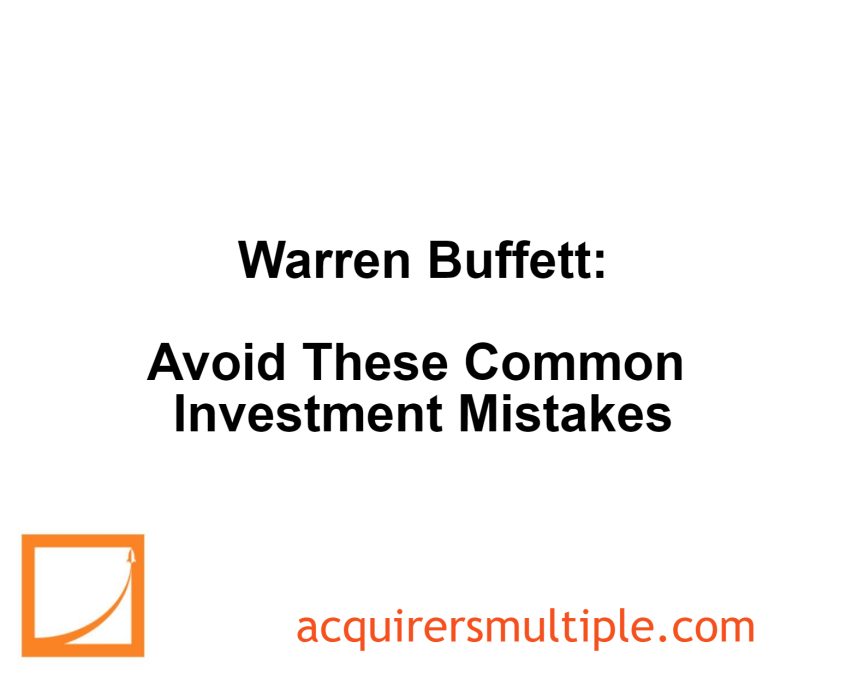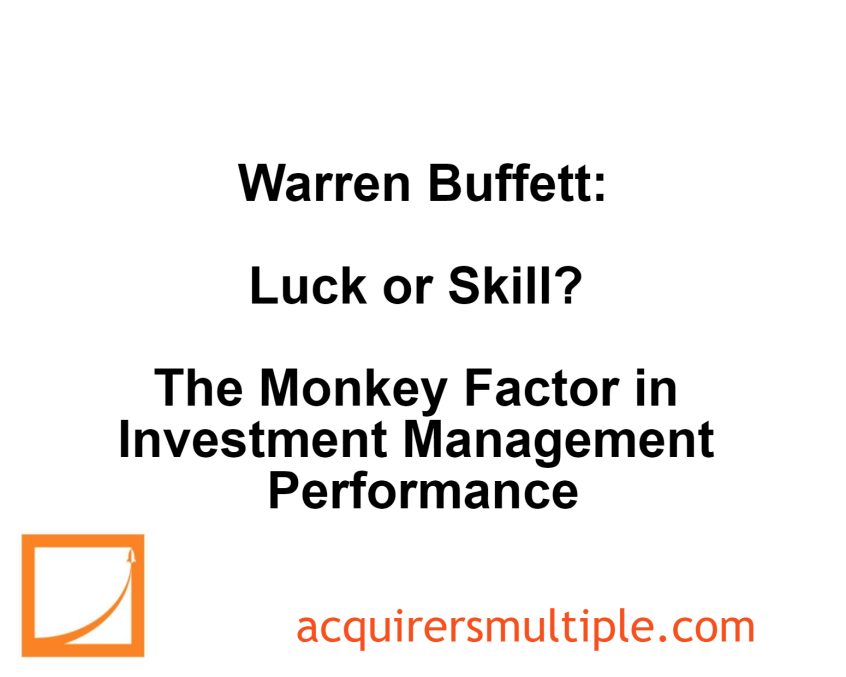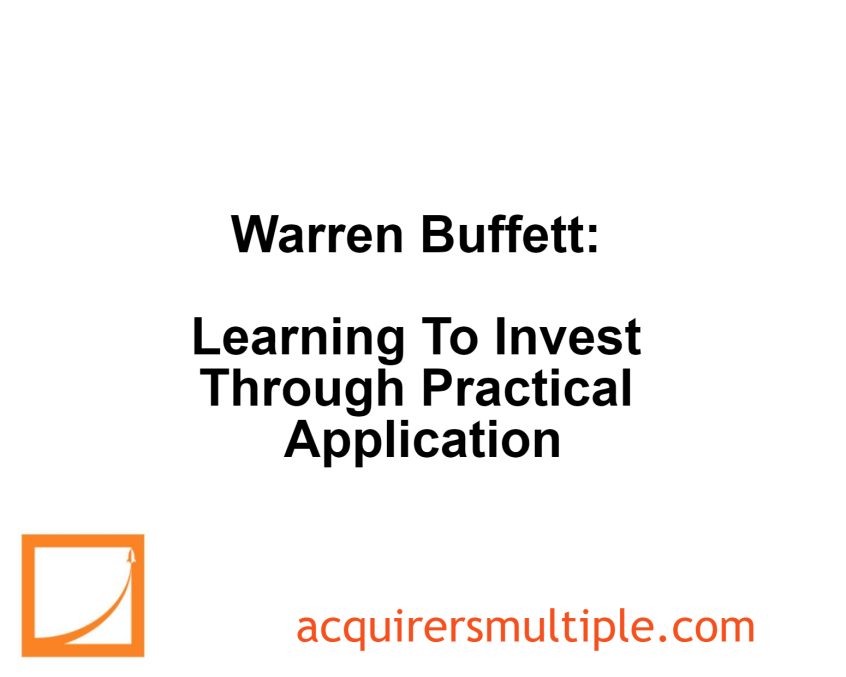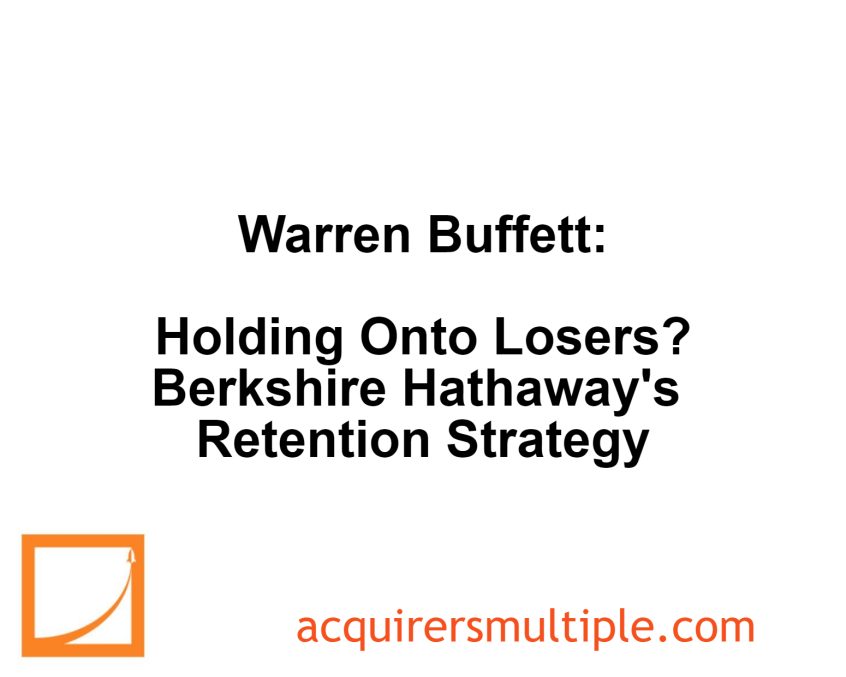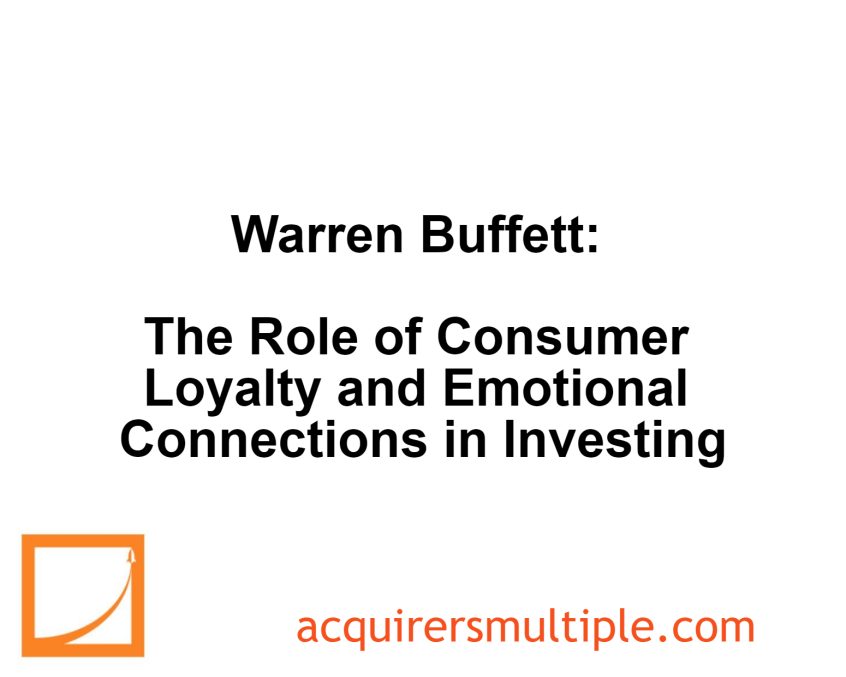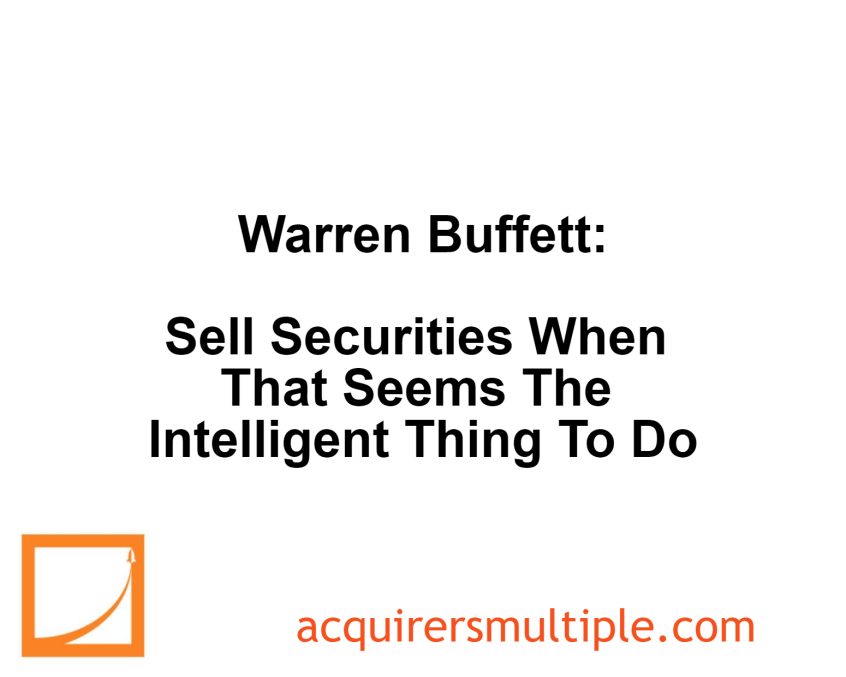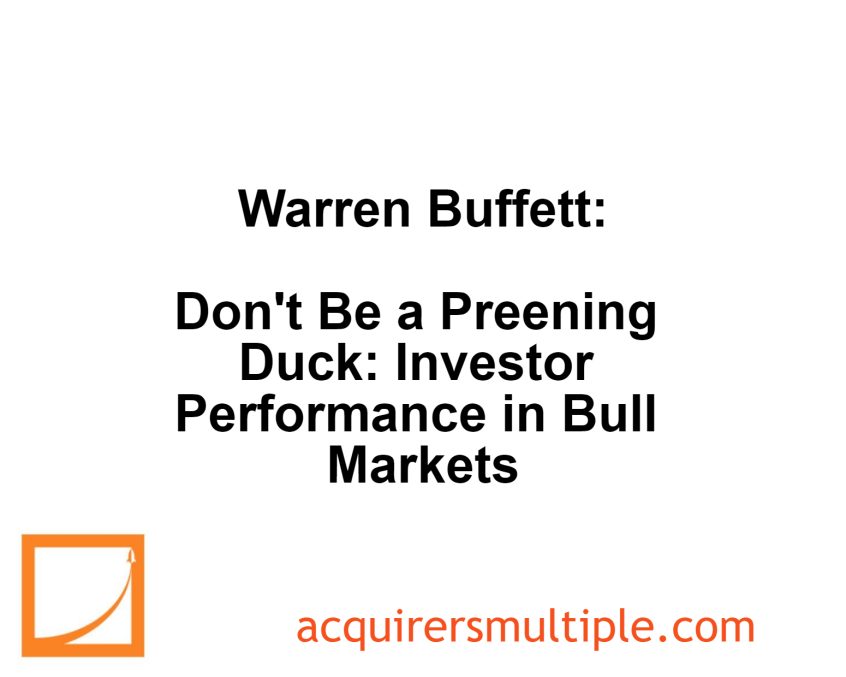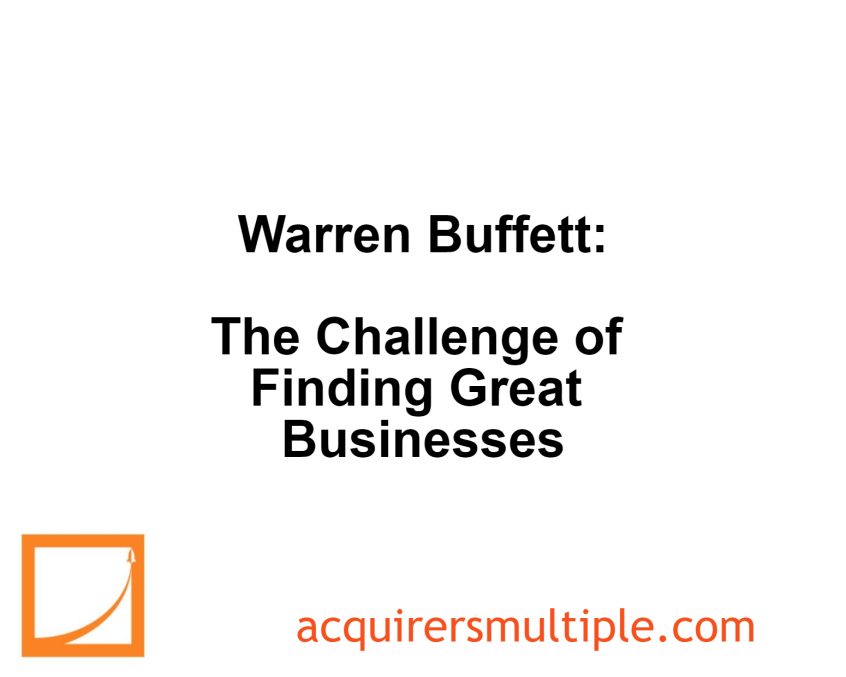During the 1994 Berkshire Hathaway Annual Meeting, Warren Buffett explained that Berkshire may consider acquiring a business without current profits if it has strong future potential. He highlights their past investment in GEICO, which initially lost money but turned profitable later. He prioritizes the present value of future earnings over … Read More
Warren Buffett: Moving Beyond Your Entrenched Ideas
In his 1983 Berkshire Hathaway Annual Letter, Warren Buffett discusses his shift in perspective on the value of economic goodwill in business investments. Originally trained to prioritize tangible assets, Buffett initially shunned businesses with high goodwill values, resulting in missed opportunities. Over time, influenced by direct and vicarious business experiences … Read More
Warren Buffett: Avoid These Common Investment Mistakes
In his 2014 Berkshire Hathaway Annual Letter, Warren Buffett discussed the common pitfalls that make stock ownership risky due to investor behavior, such as active trading, trying to time the market, inadequate diversification, paying unnecessary fees, and using borrowed money. He also emphasizes that borrowed funds should never be part … Read More
Warren Buffett: Luck or Skill? The Monkey Factor in Investment Management Performance
In his 2016 Berkshire Hathaway Annual Letter, Warren Buffett discusses the role of luck in investing, suggesting that among a large group of managers making predictions, some are bound to occasionally succeed purely by chance, much like a randomly successful monkey. However, unlike the monkey, successful managers might attract investors, … Read More
Warren Buffett: Learning To Invest Through Practical Application
During the 2007 Berkshire Hathaway Annual Meeting, Warren Buffett discussed the importance of actual experience in investing, comparing theoretical knowledge to the experiential learning that comes with real-world practice. This is akin to the difference between reading about romance and experiencing it. Buffett suggests starting with investments on a small … Read More
Warren Buffett: Holding Onto Losers? Berkshire Hathaway’s Retention Strategy
In his 2011 Berkshire Hathaway Annual Letter, Warren Buffett explains why Berkshire keeps some of its underperforming businesses. The company believes in honoring its commitment to the sellers and doesn’t sell unless the business has a cash drain or labor problems. This approach may not be optimal in the short … Read More
Warren Buffett: The Role of Consumer Loyalty and Emotional Connections in Investing
During the 2018 Berkshire Hathaway Annual Meeting, Warren Buffett discusses the importance of investing in companies that create products that engender positive emotional responses (like getting a kiss for giving See’s Candy) versus negative ones. Using Apple’s ecosystem led by the iPhone as an example of such an investment. The … Read More
Warren Buffett: Sell Securities When That Seems The Intelligent Thing To Do
In his 2017 Berkshire Hathaway Annual Letter, Warren Buffett discusses a new accounting rule that will distort net income figures. This rule requires including unrealized stock gains/losses, leading to large swings that don’t reflect actual business performance. He argues that these fluctuations will mislead investors and render net income useless … Read More
Warren Buffett: Stealing with a Pen: The Devastating Effects of Corporate Fraud
In his 1988 Berkshire Hathaway Annual Letter, Warren Buffett argues that some companies view Generally Accepted Accounting Principles (GAAP) as guidelines to be creatively interpreted, rather than strict rules. This can lead to misleading financial statements and even fraud. Investors and creditors who rely on GAAP figures are vulnerable to … Read More
Warren Buffett: Managerial Performance: Ditching the Yardstick or Fixing the Problem?
In his 1983 Berkshire Hathaway Annual Letter, Warren Buffett explains why operating earnings/equity capital ratio is a good measure of managerial performance for most companies, but it may not be ideal in all situations. He finds it suspicious when a company abandons this metric during poor performance, suggesting they might … Read More
Warren Buffett: Turning Dark Clouds into Golden Opportunities
In his 2016 Berkshire Hathaway Annual Letter, Warren Buffett discussed his belief that the company’s normalized earning power per share will increase over time, despite fluctuations in actual earnings due to economic downturns or industry-specific events. This is achieved by reinvesting a significant portion of earnings to achieve this growth … Read More
Warren Buffett: Don’t Be a Preening Duck: Investor Performance in Bull Markets
In his 1997 Berkshire Hathaway Annual Letter, Warren Buffett recommends investors shouldn’t get overly excited about strong performance during bull markets (periods of rising stock prices). This metaphor compares such investors to a duck who thinks its paddling skills caused it to rise after a heavy rain, instead of recognizing … Read More
Warren Buffett – Top 10 Holdings – Latest 13F
One of the best resources for investors are the publicly available 13F-HR documents that each fund is required to submit to the SEC. These documents allow investors to track their favorite superinvestors, their fund’s current holdings, plus their new buys and sold out positions. We spend a lot of time … Read More
Warren Buffett: The Two Most Super-Contagious Diseases on Wall Street
In his 1986 Berkshire Hathaway Annual Letter, Warren Buffett explained that while common stocks can offer significant returns, he is currently not finding any that meet his investment criteria. His strategy involves being cautious during periods of excessive optimism and taking advantage of opportunities when fear is prevalent. Here’s an … Read More
Warren Buffett: Wall Street Spin vs. Honest Abe: How Berkshire Values Businesses
In his 2018 Berkshire Hathaway Annual Letter, Warren Buffett is critical of the way some on Wall Street present financial data, specifically earnings, in a way that inflates their true value. He compares this to someone calling a dog’s tail a leg – it doesn’t change the reality of what … Read More
Warren Buffett: The Challenge of Finding Great Businesses
In his latest 2023 Berkshire Hathaway Annual Letter, Warren Buffett discusses his strategy of investing in businesses with strong fundamentals and enduring competitive advantages. He explains how finding these businesses has become more difficult due to Berkshire’s own size and increased competition. He also emphasizes the importance of trustworthy management, … Read More
Warren Buffett: When To Sit on Cash Instead of Buying Stocks
In his 2002 Berkshire Hathaway Annual Letter, Warren Buffett explains how they are willing to wait on the sidelines for opportunities with at least a 10% pre-tax return potential, even though holding cash offers low returns. He acknowledges the discomfort of this approach, but believes it’s necessary for successful long-term … Read More
Warren Buffett: Chasing Illusions: The Truth Behind Chain-Letter Stock Promotions
In his 1968 Buffett Partnership Letter, Warren Buffett discusses the widespread financial phenomenon of chain-letter type stock promotions, where substantial amounts of money are made through various roles in the process. He describes how these activities rely on illusions created through accounting distortions and other means, leading to profitable outcomes. … Read More
Warren Buffett: Berkshire’s 4 Time-Tested Strategies for Success
In his 2008 Berkshire Hathaway Shareholder Letter, Warren Buffett explains that while the stock market has been positive in 75% of the past 44 years, it is impossible to predict future performance. Instead, he focuses on four goals for Berkshire Hathaway to ensure its success. Here’s an excerpt from the … Read More
Warren Buffett: Hogs, Hedge Funds & Human Flaws: The Game Behind Your Money
In his 2016 Berkshire Hathaway Annual Letter, Warren Buffett explains that many investment professionals exploit human psychology to earn high fees, regardless of actual performance. This harms institutions like pension funds and enriches advisors. He uses an anecdote about selling livestock to illustrate how skilled storytellers, not necessarily experts, can … Read More

